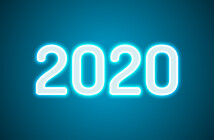Here are our curated tweets from the chat2lrn Twiiter chat on reflection in learning.
From relection to action
Curated tweets from the chat2lrn #twitter chat on reflection in learning.
Storified by Martin Couzins· Thu, Mar 21 2013 15:07:30
Q1) What does reflecting on learning mean to you? #chat2lrnchat2lrn
Q1) Reviewing. Writing. Sharing. Discussing. #chat2lrnjd Dillon
Q1) It means joining the dots, connecting new stuff with old stuff so that I can do something better #chat2lrnfiona Quigley
Q1) There’s a saying, "You need to have a hook to hang it on." When you learn you need to process it. #chat2lrnadam Weisblatt
q1) Reflecting means intentionally turning an experience into learning. #chat2lrnpatti Shank PhD CPT
Q1) Extending opp to understand, deepen, apply learning. #chat2lrndebra Beck, EdD
A1) Reflecting to me means pausing after learning something and synthesizing how I can apply/adapt/use #chat2lrntom Spiglanin
Q1) What does this new knowledge mean to me? How does it strengthen or alter my beliefs? What are my next steps? chat2lrnJD Dillon
Q1) You need to shift the old frameworks of understanding to make room for the new one. Must reflect to do it. chat2lrnAdam Weisblatt
Q1) For me it means thinking about the what, the how & the when and then, so what? #chat2lrnj Christian-Carter
@weisblatt Agreed. Context is king and without reflection it’s nothing more than a bag in the wind. #chat2lrnandrew Jacobs
A1) Reflecting on learning means taking time to marinate on what I’ve learned, building context to how things apply to my world. #chat2lrndavid Kelly
Q1) Reflecting on learning means turning info into wisdom by applying it to real situations and work. #chat2lrnwendy Tagg
Q1) To me it means taking time to incorporate new learning into your personal schema. Otherwise it gets lost #chat2lrnandrea May
#chat2lrn Q1) taking time to process, sort out what is relevent and pertinent to me and how I can apply what I’ve learned.Sarah
Q1 Reflection isn’t in addition to learning, it’s part of it. We don’t give it enough credibility in our design. chat2lrnAndrew Jacobs
q1) It also goes beyond content to who and how. chat2lrnPatti Shank PhD CPT
Q1) Think conferences should have a special "reflection room" that has nice soft seats, music and beer chat2lrnFiona Quigley
A1) Reflection is all about context. Chat2lrnDavid Kelly
@sarah_korbel @weisblatt And learning without reflection or context just becomes litter. #fileshandouts chat2lrnAndrew Jacobs
Q2) What benefits do you see from reflecting on learning? chat2lrnchat2lrn
#chat2lrn q2) If I didn’t reflect on learning, I wouldn#t learn anything myselfNiall Gavin
Q2) What we call learning is really collecting. Reflecting is where you really learn. chat2lrnAdam Weisblatt
Q2) Get beneath the surface. Create deeper connections. Connect the dots. Stronger application. chat2lrnJD Dillon
q2) Makin’ it "real." Transfer from instruction to reality. chat2lrnPatti Shank PhD CPT
Q2) New ideas can be born out of the reflection of learning while applying ideas to current challenges. #chat2lrnlisa Goldstein
Q2) Reflection makes me focus on what I need to do better chat2lrnFiona Quigley
Q2 chat2lrn Benefits: Reflecting is taking the learning from someone else’s context to mine.Wendy Tagg
Q2) I think reflecting allows you to make the leap from theory to application. chat2lrnAndrea May
A2: Need to look/reflect on what is being learned, gain comprehension and teach to others #chat2lrnbrandie McCallum
Q2) Reflection through writing (blog, tweet, etc.) creates sharing opportunities so others can benefit. chat2lrnJD Dillon
Q2) Reflection: No other way to integrate new knowledge with your existing schema. Without that you won’t accept it. chat2lrnAdam Weisblatt
Q2) Reflecting helps maintain continous cycle of learning – experience it – understand it – reflect on it – learn it – chat2lrnFiona Quigley
A2 Isn’t that like asking what it’s like drinking and spitting, smoking without inhaling, chewing not swallowing? chat2lrnAndrew Jacobs
Q2)Reflecting takes it to the next level, rather than just receving info to recall. Reflection increases knowledge and perspective.##chat2lrnsarah
A2 doesn’t the learning come from the reflection? Aggregation isn’t learning; the act of sifting and filtering is. chat2lrnAndrew Jacobs
A2) Reflection helps make learning tangible, and helps me better translate knowledge into action that applies to my role. Chat2lrnDavid Kelly
#chat2lrn q2) By reflecting and (if appropriate) sharing those reflections, one makes oneself accountable to oneself and to othersNiall Gavin
Q3) If reflection is important, why don’t we do more of it? chat2lrnchat2lrn
Q3) Because my project is due tomorrow! 🙁 chat2lrnJD Dillon
q3) Who says we don’t? chat2lrnPatti Shank PhD CPT
Q3) Perceptions of ‘no time,’ not knowing/understanding that, lack of model/experience… chat2lrnDebra Beck, EdD
Q3) we don’t make the time. life & day-to-day work gets in the way. can’t see forest for trees #chat2lrnmeg Bertapelle
Q3) Reflection might be more often associated with the "big ahas" so maybe it scares us a little? chat2lrnFiona Quigley
Q3) Time pressures, distractions, can’t be bothered, don’t know how … chat2lrnJ Christian-Carter
Q3) Priorities. Pace of everyday life. We forget to set aside time to just think, read, write, be. chat2lrnJD Dillon
Q3) chat2lrn Why not reflect more? We’re too hung up with busyness. It’s hard to justify taking the time to quietly mull things over.Wendy Tagg
#chat2lrn Q3) Suspect we all do; maybe not as consciously as we might, but ‘stuff’ lingers…Niall Gavin
Q3) It may help to remind ourselves that it IS productive behavior. chat2lrnLisa Goldstein
A3 #controversywarning Because it’s not something L&D can control, measure, or provide so we don’t include it in design. chat2lrnAndrew Jacobs
Q3) I think it is getting into the habit. Too busy getting things done to think about it deeply! chat2lrnFiona Quigley
Q3) If it doesn’t automatically resonate with us, sometimes we move onto the next quickly and miss out. chat2lrnSarah
A3) "I’m so busy I don’t have time." Self-fulfilling prophecy, reject that notion, please. chat2lrnTom Spiglanin
#chat2lrn A3) building it into design means we need to incorporate reflection type activies, questions, experiences – sometimes challengingCindy Jensen
#chat2lrn Q3) reflection isn’t a practice taught or role modelled in Western cultures is it?Change Continuum
@ChangeContinuum Homework? chat2lrnAndrew Jacobs
@ChangeContinuum It is an important habit that we need for all sorts of reasons chat2lrnPatti Shank PhD CPT
"@ChangeContinuum: chat2lrn Q3) reflection isn’t a practice taught or role modelled in Western cultures is it?" in religion mostlySimon Heath
A3) People designing learning don’t know how to design experiences that encourage reflection. chat2lrnDavid Kelly
Q4) How do you build time into your routine for reflecting? chat2lrnchat2lrn
#chat2lrn Q4) Favourite tweets, then save them to my #evernote accountNiall Gavin
Q4) I block time into my calendar for regular reflection AND time associated with specific activities (ex: #lscon). chat2lrnJD Dillon
Q4) Need to create some space for your head to not think. chat2lrnFiona Quigley
#chat2lrn Q4) when you’re more conscious of it’s value you do it more in different ways. Valuing the time to reflect is critical @chat2lrnChange Continuum
A4) After a "significant" event I make a point of writing about it; I can’t do that without reflecting. chat2lrnTom Spiglanin
Q4) Quite simply, I don’t! I reflect as and when I need to chat2lrnJ Christian-Carter
A4 My team and peers know that there are times I’m just ‘having a think’. Reflect needs the words ‘Step Back@ in front of it. chat2lrnAndrew Jacobs
A4: Time is an elusive creature, sometimes, I am able to block out time other times, it is a conversation/discussion on twitter chat2lrnBrandie McCallum
Q4) Work for early a.m. quiet time, always have ‘brain book’ at the ready, schedule ‘me’ lunch hrs chat2lrnDebra Beck, EdD
A4)Frankly, I don’t. If it’s something that resonates or ticks me off I’ll make a point to reflect. Otherwise I think: Why bother? chat2lrnSarah
A4) For myself, I build time to blog, and many of my blog posts are reflecting on learning. Chat2lrnDavid Kelly
Q4) I like twitter for reflection – if I see things being tweeted along the same theme it makes me think…that’s important chat2lrnFiona Quigley
Q4) chat2lrn By writing an internal blog.. Forces me to pick a topic/event/piece of work and think about it.Wendy Tagg
Q4) I can only reflect while not working – need to be doing something that is not using my brain too much chat2lrnFiona Quigley
Q4) Definitely finding > need for focus w/age. Even background noise, music becoming more distracting. chat2lrnDebra Beck, EdD
Q4 There is a great model called the "Heroes Journey" I like that. chat2lrnFiona Quigley
A4) I sometimes think better with others. That’s when I login to Skype/Twitter and chat with my PLN friends chat2lrnLisa Goldstein
A4) As a designer, I try to build reflection into learning: How can you apply this? How can this help you in your work? Chat2lrnDavid Kelly
Q4) think about it, write about it, talk about it – usually in that order for me. chat2lrnAndrea May
Q5) When is reflection easier? When is it harder? chat2lrnchat2lrn
Q5) Reflecting on success is easier. Failure is much tougher chat2lrnFiona Quigley
A5 Easier for me when I’m on my own – I need to internalise. chat2lrnAndrew Jacobs
#chat2lrn q5) like most things…it’s easier when you have support! harder if not.Juana Llorens – L&D
Q5) For me (an introvert), solitude when brain is fresh is essential – & harder to come by than it once was. chat2lrnDebra Beck, EdD
Q5) I like my own company when I reflect – then I can reflect with others without having my thoughts drowned out. chat2lrnFiona Quigley
q5) chat2lrn Easier: When things going well, attention undivided. Harder: when juggling loads of tasks.Wendy Tagg
A5) Reflecting is "easier" when new knowledge is fresh, but need to make the time to do it. chat2lrnTom Spiglanin
Q5) Reflect is impossible when you are being force-fed training. chat2lrnAdam Weisblatt
A5) Reflecting becomes harder when you can’t see the forest for the trees; get busy, don’t see big picture and make time. chat2lrnTom Spiglanin
Q5) when I’m not under a deadline, much easier, hard if don’t plan into schedule, but also tend to put off if competing priority chat2lrnMeg Bertapelle
Q5) Is it possible to reflect too much? chat2lrnFiona Quigley
A5) Reflection is easiest when it is baked into the learning; How will this learning help you solve a problem? chat2lrnDavid Kelly
A5) Sometime reflection is best with others, other times in solitude or better yet when both available #chat2lrnmark britz
q5) I am an activist, so best for me is during the session as part of the session. Timed and delivered. #chat2lrnliz Cable
A5) Reflection is hard when you try to fit it into work hours when you’ve already missed days of work. chat2lrnDavid Kelly
#chat2lrn Q5) Easier when I turn down the noise; very difficult when surrounded by ‘chatter’ (sometimes that means switching twitter off!)Niall Gavin
Q6) How do you get from reflection to action? chat2lrnchat2lrn
#chat2lrn Q6) What did I do? What did I learn? What am I going to do about/with it? Repeat…Niall Gavin
Q6) Make a next-steps phase part of process. Then find way to hold yourself accountable. Mixed results on that one. chat2lrnDebra Beck, EdD
Q6) chat2lrn Reflection to Action: When writing my blog, I often find items for my to do list.Wendy Tagg
Q6) Back to context. Put the reflection of the learning into the context of action and viola, you can act on it. chat2lrnAdam Weisblatt
Q6) If my reflection generates action outcomes, then I have to find the right time and place to action them chat2lrnJ Christian-Carter
A6) Reflection to action: for me, writing about it and sharing it if appropriate; writing is one action, but not the only chat2lrnTom Spiglanin
Q6) I am a fan of "see one, do one, teach one" – reflection is necessary to act on the next step chat2lrnAndrea May
Q6) Reflect on what is driving the action you want to take in the context of what you learned. chat2lrnAdam Weisblatt
#chat2lrn 6) i think reflection has to be all about envisioning action. no distinction.Juana Llorens – L&D
Q6) KISS – what will I Keep, Improve, Start and/or Stop chat2lrnFiona Quigley
Q6) We act on our framework of understanding. Reflection adjusts our framework to accommodate new ideas. This changes action. chat2lrnAdam Weisblatt
A6) Reflecting after mistakes is also important; but you have to try again, better. That’s the action, grow and improve. chat2lrnTom Spiglanin
A6) If there’s context, moving from reflection to action should be easy. chat2lrnDavid Kelly
Q6) Reflecting is giving yourself feedback and putting it into action chat2lrnFiona Quigley
#chat2lrn A6) I need to act on what I need more of and what I’m wanting more of – otherwise I experience learning decay – networking for meCindy Jensen
Q7) What role could sharing with others play in reflection? chat2lrnchat2lrn
Q7) articulating your learning to communicate to others = solidifies ideas for yourself chat2lrnMeg Bertapelle
Q7) Reflection rearranges ideas so they fit. Sharing stretches ideas so they grow. chat2lrnAdam Weisblatt
q7)Cements reflection and potentially, action steps chat2lrnPatti Shank PhD CPT
A7) We learn tremendously from seeing the contextual links that people make between new and existing information. chat2lrnDavid Kelly
A7) Sharing is caring! Get new perspective, ideas, can lead to support for taking action, keeps the learning cycle moving. chat2lrnSarah
A7: Clarification, expansion, simplification, validation, amplification… #chat2lrnexpertus
q7) To learn, teach chat2lrnPatti Shank PhD CPT
A7) One thing about sharing, it exposes one to feedback; don’t drink your own bathwater, be open to what others say chat2lrnTom Spiglanin
Q7) Speakers tell stories; we relate to their challenges.Reflecting on what worked for them helps us decide if it will work for us chat2lrnLisa Goldstein
#chat2lrn Q7) Sharing reflection makes one accountable – to oneself and to othersNiall Gavin
Q7) A different level of understanding is needed to share new learning – reflection gets you there. chat2lrnAndrea May
Q7) For me this is key, from conferences, backchannels, blogs, tweets, etc : it’s the richness of shared learning chat2lrnJ Christian-Carter
Q7) The listener often asks questions that we are then faced with answering. chat2lrnLisa Goldstein
A7) If I’m going to share my reflection with others, I need to articulate it well; it forces a higher level of understanding. chat2lrnDavid Kelly
Q7) Perhaps reflection isn’t always about action, but clarifying your understanding is important too. Others helps wth this. chat2lrnFiona Quigley
A7) Sharing as a reflective practice can offer criticism, expansion or validation to what’s been learned chat2lrnmark britz
Q7) Reflection can get you tangled up. Your network can help untangle you. chat2lrnAdam Weisblatt
Q8) What could you do to encourage others to reflect? chat2lrnchat2lrn
q8 For those not used to the reflection mindset, we can model it out loud chat2lrnPatti Shank PhD CPT
Q8) Discussiong lessons learning during projects is always a good one chat2lrnFiona Quigley
A8) Sharing is one way to encourage others; it hasn’t killed me yet – altho there have been close calls 😮 chat2lrnTom Spiglanin
Q8) Share appreciation. I appreciate this discussion. I’m learning right now. chat2lrnLisa Goldstein
A8) Model reflective practices yourself. chat2lrnDavid Kelly
Sorry – had to step out for a min. A8) Model it. Model it. Model it. And when you’re bored modelling it, model it more. chat2lrnAndrew Jacobs
#chat2lrn Q8) In any intervention, allow time & space for reflection and provide a reusable reflective log template and/or channel accessNiall Gavin
Q8) Create triggers: "Next time you see interest rates go down, think of what we learned about central banking." chat2lrnAdam Weisblatt
A8) If you want people to reflect on learning, ask better questions. chat2lrnDavid Kelly
Q8) Be the change you want to see chat2lrnFiona Quigley
A8) Build experiences in which reflection is a natural part of the process. chat2lrnDavid Kelly
Q8) Avoid too much criticism to those who reach out to share. People share because they care. Don’t stand in the way. chat2lrnLisa Goldstein
Q8 chat2lrn Let them choose a method that suits their personality: Solo thinking for solitory types or discussion for gregarious typesWendy Tagg
QWrap) Chatting is great…but reflection and action are better. What is your ‘take away’ from our chat? chat2lrnchat2lrn
Qwrap) I’m really interested in this idea of creating space for private and public reflection. chat2lrnAdam Weisblatt
AWrap) Reflect. Then share. chat2lrnTom Spiglanin
Qwrap) I found this chat especially fascinating. Really great ideas contained in this thread. Worth reflecting upon later. 🙂 chat2lrnLisa Goldstein
Thanks for joining chat2lrn today! A transcript will be posted on the blog at <a href="http://t.co/SxIyykqb" class="">bit.ly/xWlfN0</a> chat2lrnchat2lrn
#chat2lrn is tackling the topic of What Learners Want in two weeks time. A blog or article to get the cogs moving coming soon…chat2lrn
[Picture credit: Rafael Marchesini]




